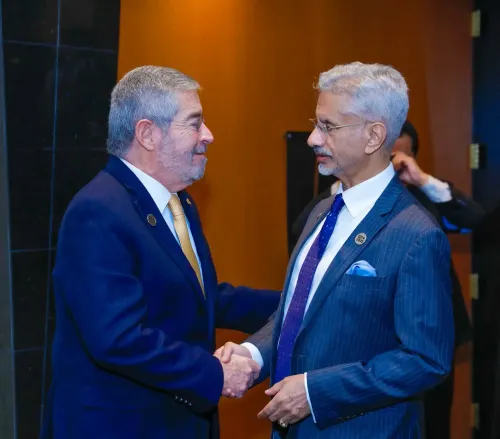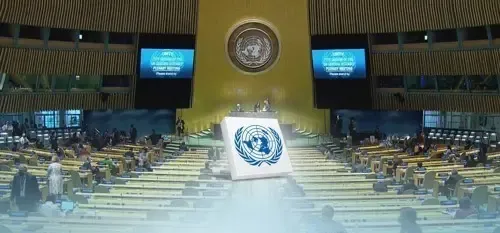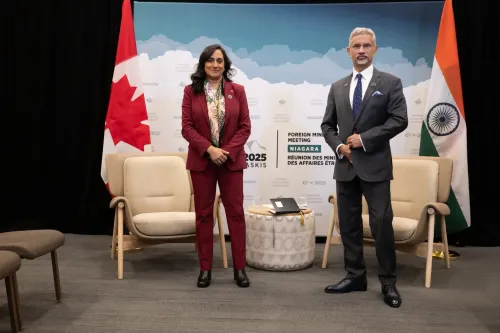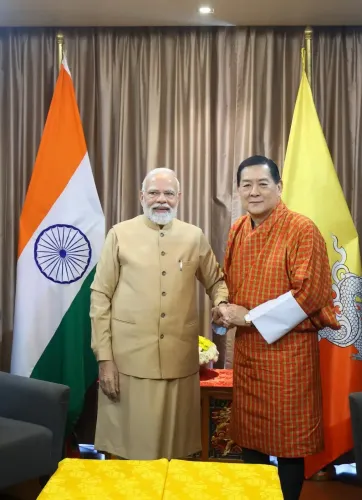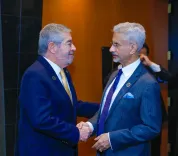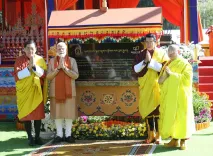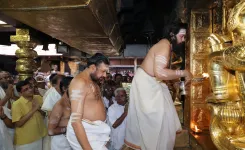Is Bangladesh Encountering Increased Political Turmoil Since the Ouster of Former PM Hasina?

Synopsis
Key Takeaways
- Political unrest in Bangladesh has escalated since August 2024.
- Human rights groups have documented significant violence and abuses under the Yunus-led government.
- At least 281 fatalities have been reported in political violence.
- The Anti-Terrorism Act has been amended to suppress dissent.
- International organizations are calling for urgent reforms and accountability.
Dhaka, Nov 11 (NationPress) Numerous human rights organizations have raised alarming concerns regarding the ongoing violations occurring in Bangladesh under the leadership of the interim government headed by Muhammad Yunus. The nation has been engulfed in political unrest since the removal of former Prime Minister Sheikh Hasina in August 2024, a situation triggered by a large-scale student-led protest, as detailed in a recent report.
According to a publication from the Dhaka-based human rights group Odhikar, the prominent German news outlet Deutsche Welle (DW) reported that at least 281 individuals have lost their lives in political-related violence following the dissolution of the Awami League government.
The report noted 40 instances of extrajudicial killings and 153 lynching events, with a significant number of these fatalities linked to Bangladeshi security forces, such as the police and military.
“In its October report, the Manabadhikar Shongskriti Foundation (MSF), an NGO, also cautioned about the increase in unidentified corpses and deaths occurring in custody. The organization documented that 66 unidentified bodies were found nationwide in October alone, alongside 13 deaths in custody during that same timeframe,” the DW report elaborated.
In a conversation with DW, Nur Khan, a member of the Bangladesh Commission of Inquiry on Enforced Disappearances, expressed that police investigations into the escalating death toll have been inadequate.
“It’s unclear whether all these cases were murders. However, there may be instances of extrajudicial killings involved. In many situations, mobs are now also accountable for extrajudicial killings,” Khan posited.
Earlier in October, six international organizations—including Human Rights Watch (HRW) and the Committee to Protect Journalists (CPJ)—sent a letter to Yunus urging for more robust actions to mitigate human rights violations.
“We are profoundly troubled by the fact that the security sector is still largely unreformed, and that members of the security forces have not fully engaged with accountability and reform initiatives,” the letter expressed.
Meenakshi Ganguly, HRW’s Deputy Asia Director, informed DW that the interim government must collaborate with “civil society, religious, and political entities” to restore the trust of the Bangladeshi people in the justice system and to quell violent protests and mob actions.
The Yunus administration has revised the 2009 Anti-Terrorism Act, utilizing it to prohibit the Awami League party led by Hasina. HRW condemned these amendments as “draconian,” noting that several journalists have been apprehended under this legislation.
The report brought to light that journalist Monjurul Alam Panna and 15 others were detained in August for their participation in a roundtable discussion concerning the country’s 1971 independence struggle against Pakistan.
In a statement last month, Reporters sans frontières (RSF) South Asia head Celia Mercier highlighted Monjurul Alam Panna’s detention as emblematic of the “growing authoritarianism of Bangladesh’s interim government,” accusing the Yunus-led administration of employing anti-terrorism laws to “silence dissenting voices.”

